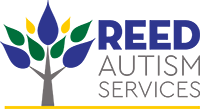Autism Resources
My Child Was Diagnosed with Autism, Now What?
In the swirl of emotions that accompany a child getting an autism diagnosis one thing is clear: Your child deserves the best care and education, starting now. Here’s how to get it.
You might be feeling so many different emotions right now following your child’s autism diagnosis. You might feel worried about the future you envisioned for your child and scared about the unknown future she or he now faces. You might be feeling a range of emotions all at once. There is no right or wrong way to feel. But there are some steps you can take to make sure you and your family are well-equipped for whatever lies ahead.
- Take time to process your emotions. There is strength in acknowledging how you feel. Some parents are comforted by discussing them with a partner, family members, friends, support group, or a counselor. After taking time to work through your own feelings, you’ll be better equipped to turn your attention to your child. There is so much you can do now to set them up to live a happy, rewarding life at their fullest potential.
- Don’t rush into any decisions. No one is expecting you to make decisions about your child’s short-term or long-term future right this minute. Do your own research—the websites of Autism NJ and ASAT have helpful information—and get recommendations from friends or local parents of children with autism (if you don’t know any, search online for support groups in your area). Once you have a stronger understanding of your child’s diagnosis and your options, you can make decisions that are best for your child and your family.
- But do look for an early intervention program based on applied behavior analysis. This is crucial following an autism diagnosis as an early intervention program can lay the foundation for learning for your child. Numerous studies have shown improvement in core autism symptoms after consistent early intervention with ABA. A quality ABA-based program will use ABA (applied behavior analysis) to objectively track individualized goals and benchmarks, will work with parents and family members to ensure your child receives support and instruction in the clinic setting and at home, and will be happy to communicate and collaborate with family and outside clinicians on your child’s team. A quality ABA-based program will be supervised and overseen by a Board Certified Behavior Analyst (BCBA) and use ABA to objectively track goals, developmental milestones, etc.
- Learn the lingo. Right now, phrases like EI (early intervention), IEP (individualized education program), IDEA (Individuals with Disabilities Education Act), and FAPE (Free Appropriate Public Education) might mean little to you. Don’t be intimidated by all these acronyms—though they’re new to you now, it won’t take long to learn about the various programs, services, and legal rights that your child is entitled to. Children under 3 years of age don’t have IEPs, they have individualized family service plans (IFSP), if receiving services (DI, speech, OT, PT) through the state.
- Establish a support network. As you build a team of clinicians and caregivers that will work with and for your child, communication is key—between you and your child’s professional network, and also between the various clinicians themselves. Once you find programs and services that best suit your child—and your family—you’ll be able to support your child’s future more clearly.

